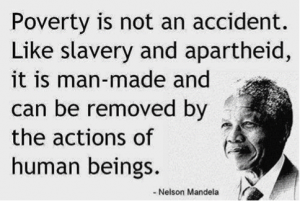LUIS A. MARRERO, MA, RODP, LLP
CEO, Boston Institute for Meaningful Purpose
Abstract
Viktor Frankl (2006)[i] shared that “we can discover this meaning in life in three different ways: (1) by creating a work or doing a deed; (2) by experiencing something or encountering someone; and (3) by the attitude we take toward unavoidable suffering.” Logoteleology[ii] or Meaningful Purpose Psychology (2013) embraces Frankl’s propositions; yet it differentiates between two types of suffering, and offers preventive and meaningful alternatives to confronting life’s painful challenges.
Meaningful Purpose Psychology (MPP) is the scientific study of the meanings that enable people and institutions to succeed. Its scientific name is logoteleology (Marrero, 2013). While MPP provides remedial interventions to deal with existential problems, logoteleology is primarily dedicated to prevent conditions that lead to the existential vacuum.
Two types of Suffering
MPP proposes that there are two sources to suffering. The first is natural or unavoidable suffering or the inevitable anguish and sorrow that comes from events we cannot control, such as unintentional and genetic illnesses, consequences of natural disasters, and death. The second is self-inflicted suffering or the consequence of human-made tragedies such as wars, theft and corruption, poverty, addictions, and murder, amongst others.
Fortunately, there are various effective and promising curative methods that deal with both natural and self-inflicted suffering, such as logotherapy. And they both deserve our compassionate attention. Still, MPP cautions that we should not unintentionally accept suffering as a totally inevitable and tragic human condition, particularly when so much of human grief is man-made. Too much emphasis on remedial tools and methods can actually divert attention from studying the root causes of suffering; and countering them with more meaningful precautionary approaches.
Self-inflicted or man-made suffering can be prevented; and MPP proposes that the social sciences – particularly the field of psychology — need to play an active role preventing problems by helping individuals (1) discover what is meaningful and meaningless; (2) discover how they prevent themselves from doing the meaningful; (3) embrace and become skilled practicing meaningful behaviors; and (4) providing them with the necessary tools to create and sustain conditions that lead to human thriving. MPP uses learning laboratories to aid individuals explore the dynamics and roots of failure; to learn more effective and meaningful alternatives; and to increase the odds for human thriving and success.
Why Self-inflicted Suffering?
I am often asked, why do we humans bring upon themselves these lamentable conditions that harm us? MPP came to being in light of a paradox: How come there is so much self-inflicted suffering when we are living in an age of knowledge explosion? Or as I candidly established in my book, “Mankind, I concluded, does not suffer from a lack of answers. Rather, it suffers despite the answers being available.”
The short answer is, “Because we mean to. Period.” We are agents with the power of choice. Those of us who live in free democratic societies enjoy the freedom to choose. How to be civil, loving, and respectful to one another is not a hidden secret. We are swamped with answers and solutions. We can readily discover and learn what works and does not work in interpersonal, intergroup, and international relations. We have access to libraries, book stores, the internet, wise gurus, universities and research centers brimming with information. Again, we do not lack answers. MPP offers that what we lack as a human species is the will to do the meaningful.
The Statue of Responsibility
Freedom is but the negative aspect of the whole phenomenon whose positive aspect is responsibleness. In fact, freedom is in danger of degenerating into mere arbitrariness unless it is lived in terms of responsibleness. That is why I recommend that the Statue of Liberty on the East Coast be supplemented by a Statue of Responsibility on the West Coast. ~ Viktor Frankl
Building a will to do the meaningful can be a challenge to people. Otherwise we would be reading and hearing more positive headlines in our newspapers and evening news, respectively. In too many settings people are not aware of what constitutes to act meaningfully. Despite the knowledge being available, individuals not only lack the competence they are also unaware of how to create healthy and positive conditions to thrive.
The good news is that responsibility can be learned, and successful thriving is achievable. MPP and other schools of psychology have much to offer, and we should all strive to take advantage of the solutions surrounding us. Fortunately, we have The International Network for Personal Meaning that encourages the integration of multiple disciplines to help promote what is meaningful; to apply what will competently and responsively heal; and to help prevent self-inflicted suffering.
A good place to start the journey is by agreeing to what is meaningful, and to have the will to act courageously and responsibly.
©2015 Luis A. Marrero
[i] Frankl, Viktor E. (2006) Man’s Search for Meaning. Boston. Beacon Press. p.111
[ii] Marrero, Luis A. (2013) The Path to a Meaningful Purpose: Psychological Foundations to Logoteleology. Bloomington: IUniverse LLC

 Meaning Conference 2025 will be the INPM’s first in-person conference with a virtual option after the pandemic.
Meaning Conference 2025 will be the INPM’s first in-person conference with a virtual option after the pandemic.